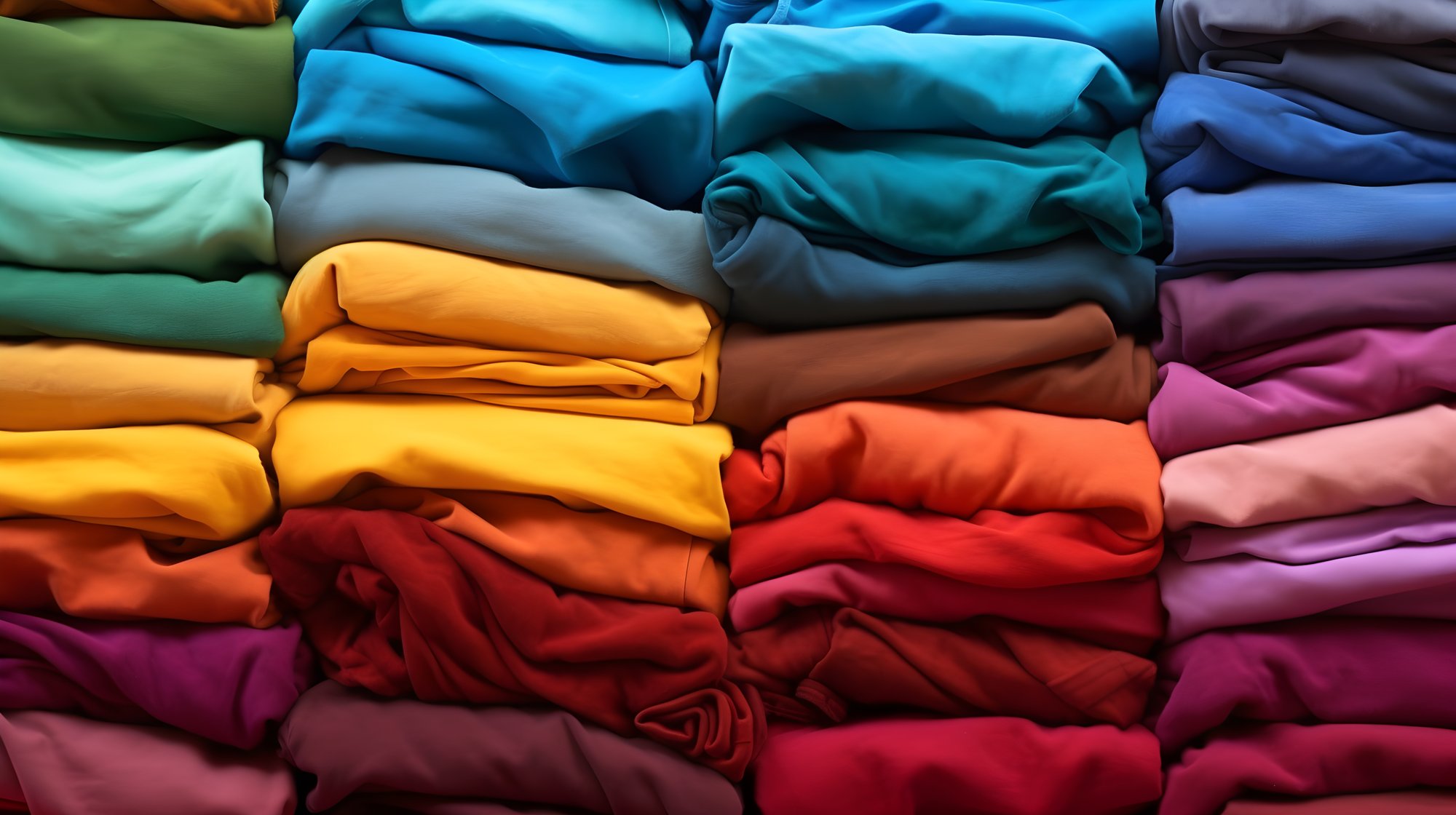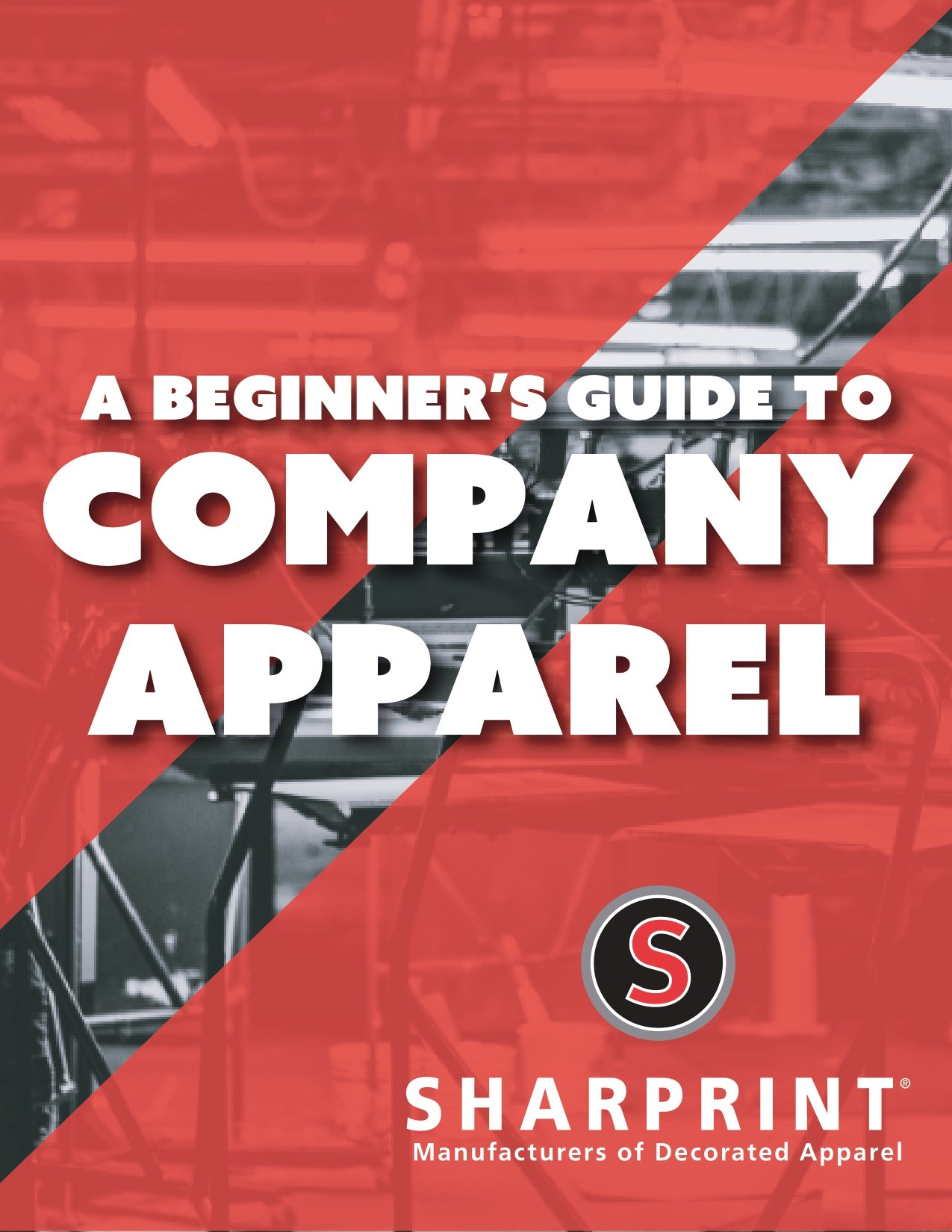T-Shirts & Polos

T-Shirt Fabrics Available For Printing
100% Cotton Tees
A timeless favorite, 100% cotton tees are ideal for screen printing, direct-to-garment printing, and embroidery. While basic unisex tees are budget-friendly and perfect for giveaways, race shirts, or volunteer apparel, manufacturers now offer a wide range of fashion-forward and specialty styles for men, women, kids, toddlers, and babies. Whatever the cotton tee, we can screen print, embroider, or digitally print it to your specifications.
Cotton/Poly Blends
Blended tees combine the softness of cotton with the durability of polyester, offering reduced wrinkling and shrinkage. These blends come in various styles, colors, and fabric weights, and are priced similarly to 100% cotton. Some decoration processes are less compatible with polyester blends—contact us to learn more about the details.
100% Polyester Tees
Polyester tees are engineered for performance, with moisture-wicking properties and wrinkle resistance. Ideal for athletes, fast-paced professions, or active lifestyles, these tees are comfortable, functional, and stylish for leisurewear as well.
Eco-Friendly Tees
Sustainable apparel has never been more popular. From organic cotton, bamboo, soy, and hemp to tees made from recycled plastics or even upcycled garments, eco-friendly options are abundant. If environmental responsibility is important for your custom apparel, we can help you find the perfect eco-conscious tee, including options made in the USA. Reach out to learn more.
Considerations For Your Decorated Apparel Order
Choosing the best method for decorating a t-shirt involves several factors. While screen printing (formerly called silkscreen) is often the first option that comes to mind, other methods may be a better fit depending on your needs. Here’s a starter list of common considerations that can influence the ideal decoration method:
Time
Cost
Art
Garment
Function
Audience
Custom Polo Shirts
"Knits" or "knitwear" typically refers to polos or sport shirts. They’re the collared shirts with button up plackets that you may have seen on the golf course with something like little gators embroidered on them. They come in long sleeves, short sleeves and a wide variety of colors. It's worth noting that "knits" can also include apparel items like cardigans and turtlenecks. Think casual Friday - dressier than t-shirts but more casual than a true dress shirt.
Polos and knits are most often embroidered, as Embroidery has a higher perceived value and therefor is generally the choice for higher end garments. Polos can be screen printed as well, in most cases. Certain knit fabrics can be printed digitally using techniques like DTF.
The vast majority of this apparel category comes in solid colors, but there are a lot of varied styles as well that can add contrast and flair. Everything from piping accents and stripes to unique panels and specialty fabric. Let’s take a look at some of the most popular options:
- 100% Cotton - Natural. Breathes well but does not dry quickly. Resists pilling but tends to wrinkle and/or shrink if washed/dried at high temperature.
- Ring Spun and Combed Cotton - Cotton fiber that has been processed or spun, creating a much softer feel with extended durability.
- Polyester - Synthetic. Wrinkle and stain resistant. Holds shape and color. Durable. Garment feel is less popular than cotton.
- Spun Polyester - Same concept as ring spun cotton; synthetic fiber with a much softer feel.
- Jersey - Knitted instead of woven, these items are soft and breathable with a slight stretch. Softens with washing.
- Pique - Knit fabric characterized by raised cords or ribs in an all over waffle, honeycomb, or diamond pattern. Very popular for adding contrast to polo or golf shirts.
- Spandex - Incredibly stretchy and can be form-fitting, this synthetic material retains shape and is resistant to washing and perspiration. Spandex is usually blended with another fabric for polos.
- Moisture Wicking - Typically consisting chiefly of polyester, these unique synthetic blends draw moisture away from the skin to be quickly evaporated.
- Anti-Microbial - whether treated artificially or benefiting from natural properties of the material (such as bamboo), these garments reduce odor causing bacteria.
- Performance - Many of today’s performance fabrics combine both moisture wicking and anti-microbial features. Again, these will often be found with high polyester content and usually intended for working out and athletes, or others who may be working in higher temperatures but with a desire for comfort in mind.
Top Apparel Decoration Articles
Custom T-Shirts and the Different Types of Printing Techniques
4 Tips for Choosing the Right Polo Shirt for Your Logo
20 Fabrics That Can Be Used for Custom Apparel Decoration
Why Promotional Clothing is Perfect for Branding Your Business
The Different Types of Fabrics Used in Custom Apparel
How to Choose Custom Uniforms for Your Employees
Do Your Employees Like Their Corporate T-shirts?
6 Advantages of Branded Clothing for Your Business
A Beginner's Guide To Company Apparel
Custom company apparel can benefit your business in a variety of ways. Branding your uniforms, t-shirts, or promotional apparel with personality can help develop a strong company image that people will remember.
This guide is a primer for the main points to consider when ordering custom company clothing and how to start the process.
